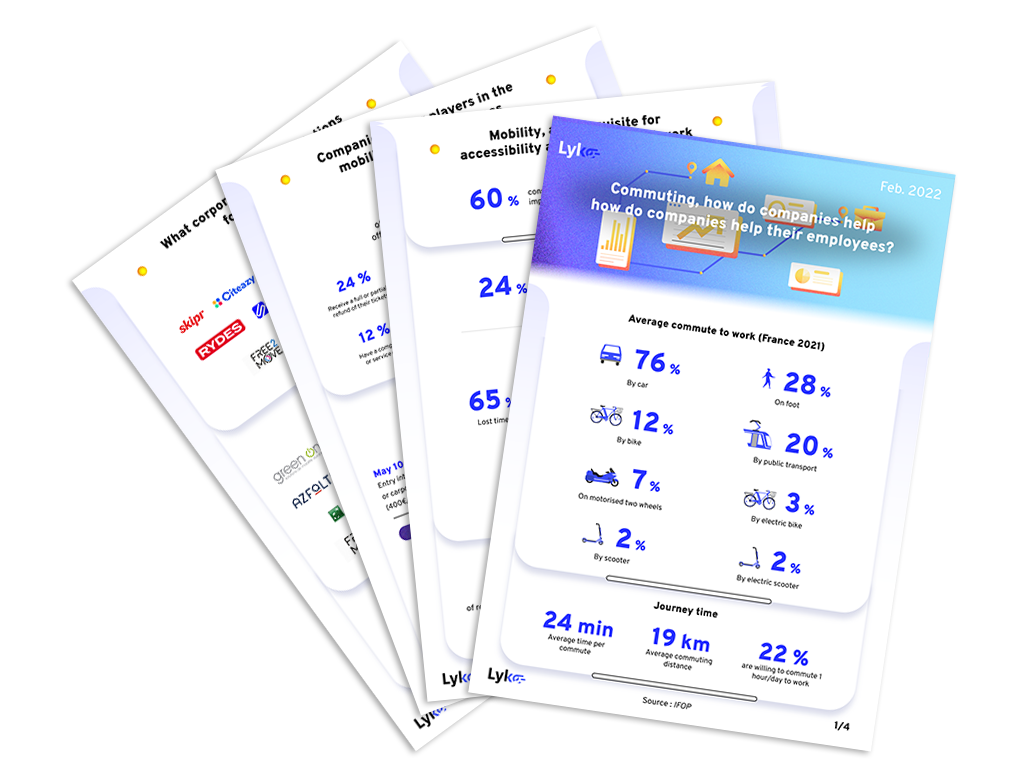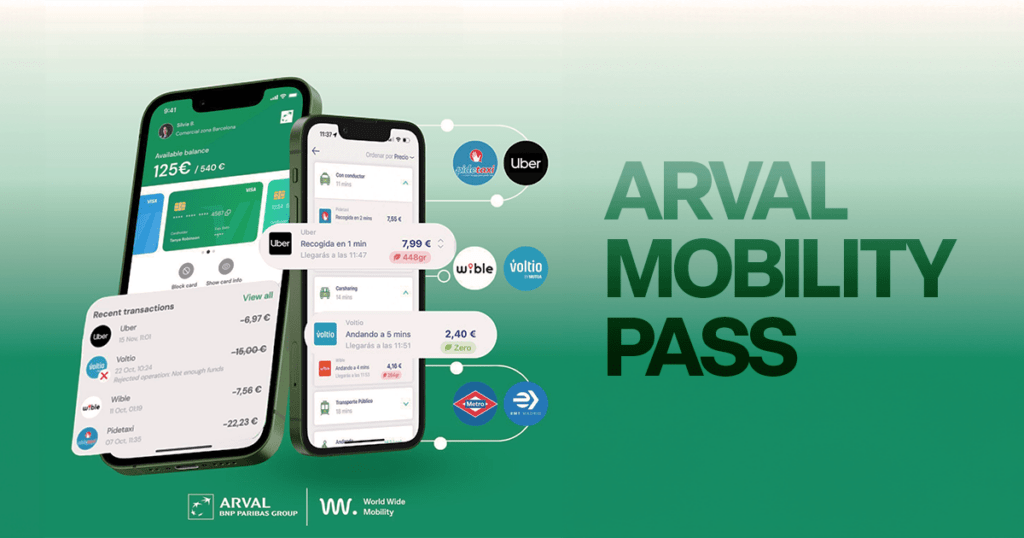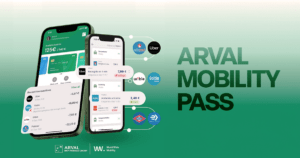Coming into effect at the end of the first deconfliction on May 11, 2020, the Sustainable Mobility Package (Forfait Mobilités Durable – FMD in French) is now celebrating its two and a half year anniversary. An optional measure of the Mobility Orientation Law (LOM), it allows any employer to provide its employees with financial aid for their commuting. From the increase in the amount, to the modes of transport included or the conditions of eligibility, it is time to take stock.
And this through the publication of the results this June 30, 2022 of the second edition of the Barometer of the Sustainable Mobility Package, initiated by the Ministry of Ecological Transition and Territorial Cohesion and ADEME, with the support of France Mobilités, and led by Via ID and Ekodev. The survey aims to “draw up a new report on the deployment of the “Sustainable Mobility Package” (FMD) among French employers and to identify the obstacles and levers of action to encourage its deployment”. Without further ado, discover the results of this survey conducted among 823 organizations, 72% of which are from the private sector…
An overall encouraging result
38%… This is the proportion of private sector employers who have declared having deployed the Sustainable Mobility Package in their organization. This represents 2 organizations in 5. A figure that has increased by 12 points compared to 2021. Moreover, according to the Barometer, today 4 out of 5 private sector employers are aware of this measure and 40% are planning to deploy it.
Results that demonstrate the willingness of companies to adopt this system, and that go beyond the private sector. In fact, 48% of respondents from the local public sector say they will have deployed the FMD by January 1, 2022. 15% say they will implement it this year. As in 2021, the main motivations are to encourage alternatives to the car (69%), the employer brand (68%), and to meet employees’ expectations (62%). In particular, in terms of comfort and buying power, underlined by an increase in fossil fuels.
Motivations linked to employees’ expectations in terms of quality of life, even more so this year in a context of rising fuel prices.
MINISTRY OF TRANSITION AND TERRITORIAL COHESION
The bicycle, the big favorite
Offering access to different modes of transport, the bicycle is by far the most encouraged, by 93% of employers. And this, as specified by the FMD Barometer “in all types of territories, both urban and rural”. Next in line are carpooling (56%), public transport (46%), private and rented MPTs (39%) and car sharing (38%).
It is important to note that public transportation does not take into account subscriptions, but only the purchase of a single ticket. A mode of transportation less favored by employers in rural areas, who encourage carpooling more (74%) than in urban or suburban areas (50%). These figures highlight an attractive alternative to areas not served by the public transport network.
Finally, another mode of transport highlighted is walking. According to an INSEE study, before the pandemic, 6% of French workers walked to work. And also, the car which was used for more than half of home-to-work trips of less than 2 km. Often forgotten, today more than 10% of employers include walking in their Sustainable Mobility package.
Some challenges in implementing
Announced as the main obstacle for 40% of respondents, the budget remains a real barrier for organizations to overcome. Indeed, as a reminder, the employer must pay half of the amount allocated to the Sustainable Mobility Package. The average amount chosen by employers has nevertheless increased from 400 to 434€ between 2021 and 2022. It should be noted that only 13% of respondents plan to implement the mobility voucher. A dematerialized, prepaid payment solution, inspired by restaurant vouchers, which came into effect on January 1, 2022.
Other obstacles cited: Lack of information (30%). The implementation of transportation alternatives, such as a fleet of electrically-assisted bicycles, which reduce the benefits of the FMD (23%). However, it is important to note that executives department is increasingly willing to support the deployment of the program. Indeed, in 2021, the executive bocage came in second place for 32% of organizations, compared to only 19% in 2022.
“Beyond the Sustainable Mobility Package”
It is important to note that in this second edition of the FMD Barometer, some difficulties were encountered by organizations that have deployed it. For 15% of the respondents, these were related to the gathering of proof and the lack of information and awareness on the subject. These figures must be balanced against the fact that 35% of employers have not encountered any problems in implementing the FMD.
In addition, 87% require only an affidavit from their employees, compared to 82% in 2021. A confidencede demonstrating the willingness of companies to “engage in a sustainable transformation of mobility at work”. The Ministry’s report also highlights other measures to support companies in their efforts to achieve sustainable mobility. Such as the conversion bonus or the ecological bonus.






